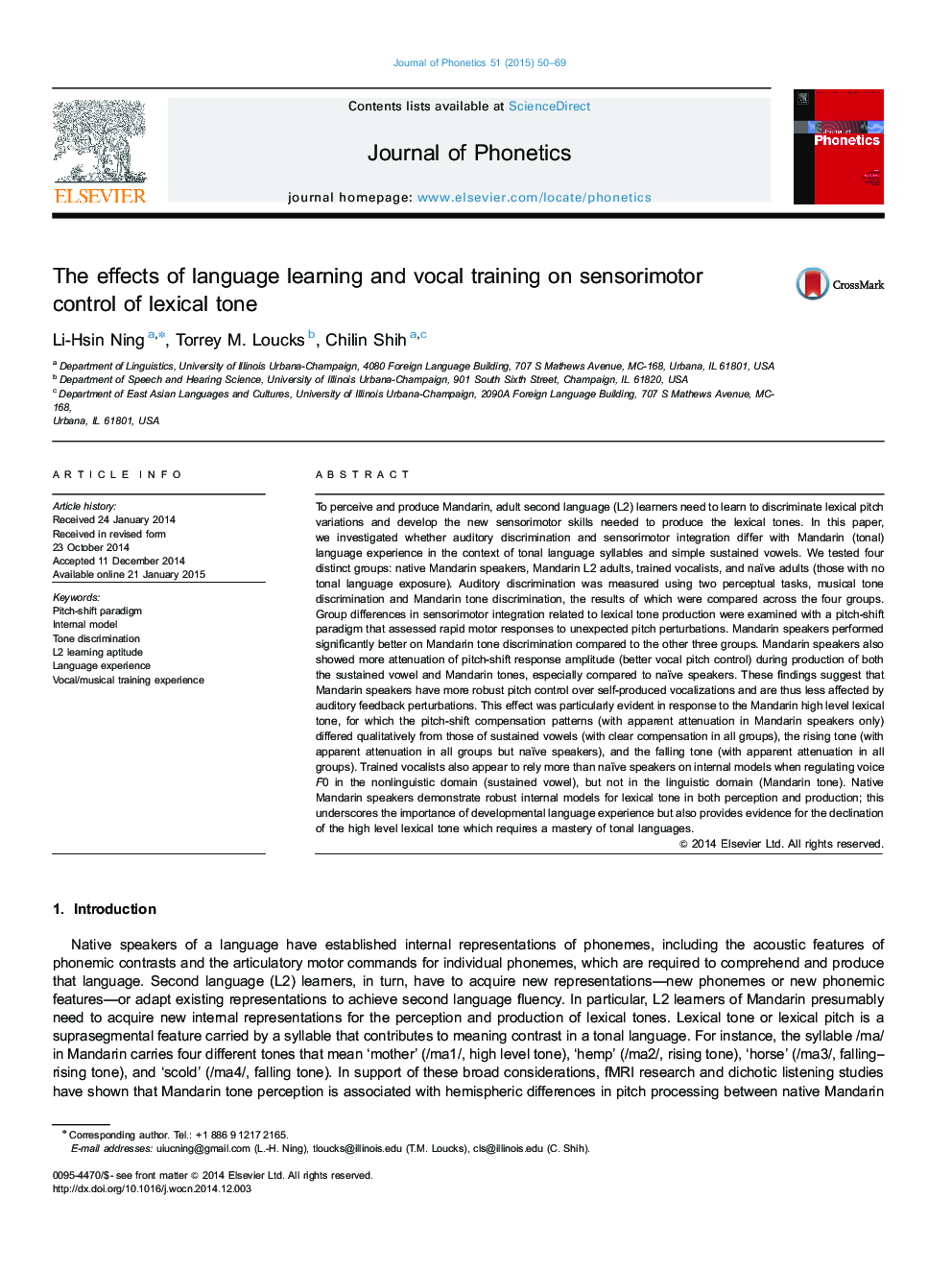| کد مقاله | کد نشریه | سال انتشار | مقاله انگلیسی | نسخه تمام متن |
|---|---|---|---|---|
| 1100671 | 1488104 | 2015 | 20 صفحه PDF | دانلود رایگان |
• Mandarin tone discrimination and robust pitch control are correlated with pitch-shift response attenuation.
• Native-like lexical tone discrimination is distinct from musical tone discrimination.
• Pitch-shift attenuation in disyllabic lexical tones is more evident in a sequence of Mandarin high level tones.
To perceive and produce Mandarin, adult second language (L2) learners need to learn to discriminate lexical pitch variations and develop the new sensorimotor skills needed to produce the lexical tones. In this paper, we investigated whether auditory discrimination and sensorimotor integration differ with Mandarin (tonal) language experience in the context of tonal language syllables and simple sustained vowels. We tested four distinct groups: native Mandarin speakers, Mandarin L2 adults, trained vocalists, and naïve adults (those with no tonal language exposure). Auditory discrimination was measured using two perceptual tasks, musical tone discrimination and Mandarin tone discrimination, the results of which were compared across the four groups. Group differences in sensorimotor integration related to lexical tone production were examined with a pitch-shift paradigm that assessed rapid motor responses to unexpected pitch perturbations. Mandarin speakers performed significantly better on Mandarin tone discrimination compared to the other three groups. Mandarin speakers also showed more attenuation of pitch-shift response amplitude (better vocal pitch control) during production of both the sustained vowel and Mandarin tones, especially compared to naïve speakers. These findings suggest that Mandarin speakers have more robust pitch control over self-produced vocalizations and are thus less affected by auditory feedback perturbations. This effect was particularly evident in response to the Mandarin high level lexical tone, for which the pitch-shift compensation patterns (with apparent attenuation in Mandarin speakers only) differed qualitatively from those of sustained vowels (with clear compensation in all groups), the rising tone (with apparent attenuation in all groups but naïve speakers), and the falling tone (with apparent attenuation in all groups). Trained vocalists also appear to rely more than naïve speakers on internal models when regulating voice F0 in the nonlinguistic domain (sustained vowel), but not in the linguistic domain (Mandarin tone). Native Mandarin speakers demonstrate robust internal models for lexical tone in both perception and production; this underscores the importance of developmental language experience but also provides evidence for the declination of the high level lexical tone which requires a mastery of tonal languages.
Journal: Journal of Phonetics - Volume 51, July 2015, Pages 50–69
